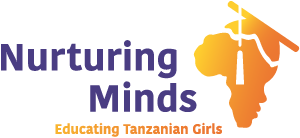Preparing Students to be Successful Businesswomen
SEGA’s Business Coordinator, Logolie
For students still perfecting their English, en·tre·pre·neur·ship is a big, huge word! But, they learn quickly to pronounce it and understand its meaning because of the critical skills they learn in the program.
For two weeks, every June after exams are completed, Form III students learn not only the theory behind profit-making programs, but also practical skills that they can take with them when they leave SEGA. They are divided into three groups and rotate through three programs: School Shop, Poultry and Sewing.
Under the leadership of the Business Coordinator, Logolie, the training is usually conducted by outside experts hired by SEGA. The girls learn how to create a business plan, implement it, analyze successes and failures, and gain the wisdom and confidence needed to someday take financial risks to earn money from their own entrepreneurship endeavors.
SCHOOL SHOP
The on-campus School Shop is open to students and staff after class hours. According to Logolie, students are responsible for the following:
Preparing a list of items to purchase in town.
Selecting products such as: water, soft drinks, biscuits and sweets, detergent soaps, pens and pencils, sanitary pads, shoe polish, honey, Vaseline body oil and deodorants.
Going to town to purchase the items, arranging them on the shop shelves and setting the sales price.
Cooking chapati (flat bread) and kachori (spicy, deep-fried bread).
Students’ bank accounts are opened during Form III. In the beginning, each student contributes 15,000 shillings as start-up capital. When someone purchases an item on credit, the Shop student writes down their name and collects it later. When students finish Form IV, the Business Coordinator distributes the profit, and the money goes straight to their bank accounts.
Says Form III student, Consolatha B, ’’I am interested in this program because I have learned how to provide good customer care. In the beginning I didn't know the concept of purchasing and selling goods but now I have knowledge.”
POULTRY
In the Poultry program, girls learn to care for broilers and egg layers. They provide food and water for the chickens, prepare chicken purchases for customers, and prepare the brooding house when new chickens are purchased by SEGA.
Recently, SEGA bought 300 young chicks, and they are receiving care for four-five weeks. There are currently 304 mature chickens. After four months, they will be ready to lay eggs.
SEWING
In the Sewing program, students are responsible for learning different tailoring skills. They learn the parts of a sewing machine, measure and cut material, and how to print on fabrics. They also design and sew finished products like skirts, pants and hand bags.
Along with providing a quality education and life skills, the Entrepreneurship Program is just one way SEGA prepares its students to improve their quality of life and to become successful leaders in their communities.
“The students are so eager to learn! They are especially motivated because they know they will be using these skills after graduation and can help teach others in their families when they return home.” says Logolie.




